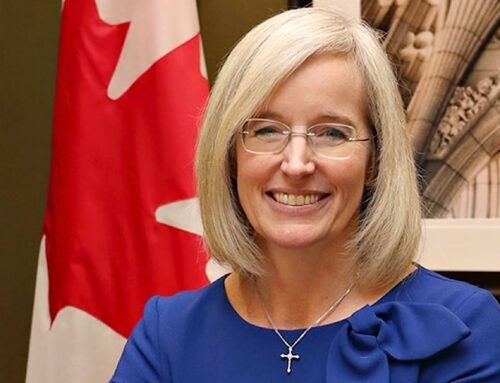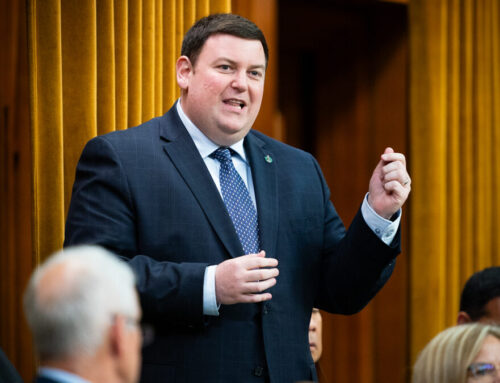Both federal government and province rush
consultations ahead of court-imposed March deadline
Ottawa gave the public two weeks to provide input on how it should expand euthanasia while the Quebec provincial government scheduled just one day of consultations ahead of broadening criteria for people seeking so-called medical aid in dying.
Last September, Quebec Superior Court judge Christine Baudouin struck down the provision of Bill C-14 that required a person’s natural death be “reasonably foreseeable” in order to qualify for euthanasia or medically assisted suicide. She also struck down the Quebec’s end-of-life requirement. She set a six-month deadline to amend the law.
But both Ottawa and Quebec are looking to expand criteria for euthanasia and both are rushing their public consultations before introducing legislation this month to be passed before the March 11 deadline.
The federal government’s online consultations were open for two weeks in January and ended Jan. 27.
The provincial government in Quebec, meanwhile, announced it would hold “at least one day” of public consultations. After facing criticism for the limited input, Quebec’s Health Minister Danielle McCann said she might expand the consultations and said there would also be “closed-door” meetings between cabinet ministers and unnamed stakeholders.
Veronique Hivon, the Parti Quebecois critic for end-of-life care and a euthanasia supporter, said “more time is needed” to draft the province’s response to the court ruling and that it should have asked the court for an extension. Eric Racine, head of the health ethics research unit at the Universite de Montreal, told the CBC that there are “grey zones” in euthanasia policy that the province is considering and that there should be more debate rather than a rush to legislate.
Quebec is looking to allow euthanasia for “exceptional cases” of mental illness when “extremely severe, persistent disorders, decades of inefficient – people who are resistant (to treatment).” But McCann appears content to let the Quebec College of Physicians to draft guidelines for determining when a patient with mental illness can qualify for euthanasia, such as when a request for assisted killing is a symptom of the illness as opposed to a genuine interest in being killed.
The federal consultation asks about permitting advance consent, something the Quebec government is also considering, which goes beyond the scope of the Quebec Superior Court decision. Advance consent would allow individuals with degenerative diseases (like dementia) to issue advance directives asking to be killed by lethal injection at a future date when they are no longer competent to consent otherwise.
The CBC reported that ten days into the online consultations, the federal government said they had received 229,281 responses from Canadians. In recent years, online questionnaires on prostitution and cannabis received about 30,000 responses each. A Ministry of Justice spokesman said there was no evidence of coordinated efforts that might goose the numbers; advocates on both sides say that the response reflects Canadians’ interest in the issue.
The federal and provincial government could have appealed the ruling.
Justice Minister David Lamettti said the government hopes to introduce a bill expanding euthanasia. Lametti was a backbencher when the Trudeau government introduced a bill to legalize euthanasia, and he was one of four Liberal MPs to vote against the government because, he said, the bill was too restrictive.
Bill C-14 – the current euthanasia law – allows euthanasia for individuals 18 years of age or older who are capable of giving informed consent, make a voluntary request that does not result from external pressure, and have a grievous and irremediable medical condition. The law defines a “grievous and irremediable medical condition” as a “serious and incurable illness, disease or disability” that results in the person being in “an advanced state of irreversible decline in capability” and enduring “physical or psychological suffering that is intolerable to the person and cannot be relieved in a manner that they consider acceptable.”
Bill C-14 also required that a person’s natural death be “reasonably foreseeable,” but Quebec Superior Court judge Christine Baudouin struck down that provision Sept. 11, 2019, as well as the Quebec law’s “end of life” requirement, as unconstitutional.
Baudouin gave the federal and the Quebec governments six months to amend their legislation.
Today, Lametti says “Canadian society has evolved quite rapidly since the legislation was passed,” and “people are generally comfortable now with the concept.”
The Liberal government online questionnaire asks about “safeguards” when allowing euthanasia in cases when a natural death is not reasonably foreseeable, but also to allow advance directives.
Alex Schadenberg, executive director of the Euthanasia Prevention Coalition, says advance directives “denies your ability to change your mind.”
Schadenberg called the online questionnaire “very problematic” because it presumes support for the current euthanasia regime. He also pointed out that many questions were vague; for example, it asks whether the current ten-day waiting period between a euthanasia request and the killing of a patient is sufficient, but it is unclear whether a no answer suggests that the wait time should be longer or shorter.
The EPC, Campaign Life Coalition, the Evangelical Fellowship of Canada, REAL Women, the Canadian Confererence of Catholic Bishops, and other faith and pro-life groups urged supporters to take part in the online survey to register opposition to expanding euthanasia and using the comment sections to express broader opposition to euthanasia. “Silence is not golden in this case. Silence does not help us,” Schadenberg said. “Even if the question is awkward, it’s better to express your opposition to something than to be silent.”
CLC urged supporters to fill out the questionnaire and to use the comments to express opposition to euthanasia more generally. They said that if euthanasia is expanded – which CLC predicted would occur once the door was opened with legalization in the first place – Canada was headed on the road to “euthanasia on demand.”
When C-14 was passed, some euthanasia advocates complained it did not go far enough and the government agreed to a review of the law after five years with an eye to expanding it then. Three years after euthanasia was legalized, the government is already looking to broaden the criteria and weaken its own so-called safeguards.
REAL Women said “what is the purpose of a five-year review if the government is expanding the law before the review has taken place?”
The Justice Department has said that a “fuller” review of the law would take place this summer, with an eye to permitting euthanasia for adolescents deemed mature enough to make the decision, for people afflicted with mental illness, and permitting advance directives.
Dr. Jonathan Griffiths wrote in theOttawa Citizenthat Canada is moving “further and faster” to “normalize” euthanasia than other countries. He said further expansion, while continuing to undermine Canada’s understanding of the “dignity and worth” of every human life, is also “truly terrifying” in “offering access to euthanasia to minors and to those suffering exclusively from mental illness.” He wondered: “what kind of society are we becoming?”





